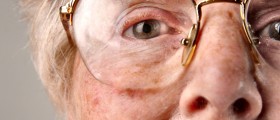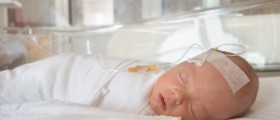
How To Cope With Fatigue And Tiredness Caused By Hepatitis C
Hepatitis C is a disease which, not only affects liver, but other organs as well, causing a number of complications. Fatigue and tiredness are conditions often associated with hepatitis C.

4 Facts You Didn’t Know About Heart Failure
While it’s true that heart failure treatment should start as soon as possible, with the right therapy and good lifestyle habits, people suffering from heart failure are much more likely to have a very good quality of life.

Hepatitis C: What Should You Know About Causes And Risk Factors?
Up to 20 percent of people who develop chronic hepatitis C will eventually succumb to the liver cancer and cirrhosis it can cause. There is no vaccine, so reducing your risk of exposure to infected blood is the best way to protect yourself.

Aortic Occlusive Disease: What Is It, And How It Can Be Treated?
When arterial blood flow is restricted, organs and tissues do not get enough oxygen to function properly. If that happens to the most important artery in the body, things can get tricky.

Reduce Your Risk Of Alzheimer's Disease: 7 Preventable Causes And Risk Factors
AD is a condition that many elderly patients are at a risk for developing but it is something that occurs secondary to years of damage from other chronic conditions. There are many common risk factors that you can change now to reduce the chances of AD.

Alzheimer's Disease Signs: What Can You Do About Weak Muscles?
Alzheimer's Disease is a complicated condition that not only involves a decline in memory, but also a decrease in muscle strength. Recent experiments have shown that there may be a link between cognitive decline and muscle strength.

What's The Difference Between Ascending And Aortic Arch Aneurysms?
The amount of pressure generated when the blood enters the aorta right after it exits the heart is unmatched in your body’s vascular system. Any condition leading to damage of this part of the aorta can have dramatic consequences.

4 Things You Should Know About Muscle Spasms (Myoclonus) And Uncontrollable Twitches
Myoclonus is a condition described as shaking movements. It can occur for a number of different reasons, and it's important to distinguish the differences because this will dictate what treatment may be helpful.

Alzheimer's Disease Signs And Incontinence: Do You Have Trouble Controlling Your Bladder Or Bowels?
Incontinence is the inability to control your urination or defecation and is strongly associated with conditions like Alzheimer's Disease. It is a very stressful time for patients and relatives affected by the disease, but interventions can help.

Congenital Heart Defects: 6 Facts To Know About Truncus Arteriosus
Truncus arteriosus is a rare congenital heart disease. Let's take a closer look at the symptoms, cause, risk factors, diagnosis, treatment and complications of this disease.

